12-Step Programs
The Purpose Of The 12 Steps
The 12 Steps were created by the founders of Alcoholics Anonymous to establish guidelines to overcome an addiction to alcohol. The program gained enough success in its early years for other addiction support groups to adapt the steps to their specific substance or addictive behavior.
There are many 12-step programs for various addictions and compulsive behaviors, ranging from Cocaine Anonymous to Debtors Anonymous—all using the same 12-Step methods.
Although the 12 Steps are based on spiritual principles, many nonreligious people have found the program immensely helpful. The language emphasizes the presence of God as each participant understands God, allowing for different interpretations and religious beliefs.
Try Online Therapy
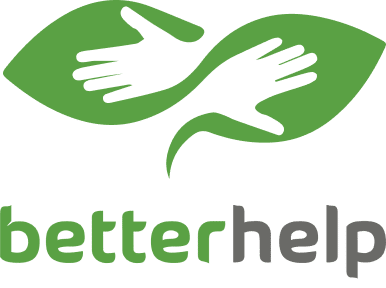
Get professional help from an addiction and mental health counselor from BetterHelp by phone, video, or live-chat.
Take the Quiz. Get Matched. Begin Therapy.

Online therapy can help you with long term addiction support. Connect with a therapist from Talkspace anytime, anywhere.
Get matched with a therapist now.
Paid Advertising. We may receive advertising fees if you follow links to promoted online therapy websites.
The 12 Steps Of Alcoholics Anonymous
Because recovery is a lifelong process, there’s no wrong way to approach the 12 Steps as the participant tries to figure out what works best for their individual needs. In fact, most participants find that as they grow in their recovery they will need to revisit some steps or even tackle more than one step at a time. Steps 1, 2, and 3 are considered the foundation of a 12-Step program and are recommended to practice daily.
Here are the 12 Steps as defined by Alcoholics Anonymous:
1. We admitted we were powerless over alcohol–that our lives had become unmanageable.
2. Came to believe that a Power greater than ourselves could restore us to sanity.
3. Made a decision to turn our will and our lives over to the care of God as we understood Him.
4. Made a searching and fearless moral inventory of ourselves.
5. Admitted to God, to ourselves and to another human being the exact nature of our wrongs.
6. Were entirely ready to have God remove all these defects of character.
7. Humbly asked Him to remove our shortcomings.
8. Made a list of persons we had harmed, and became willing to make amends to them all.
9. Made direct amends to such people wherever possible, except when to do so would injure them or others.
10. Continued to take personal inventory and when we were wrong promptly admitted it.
11. Sought through prayer and meditation to improve our conscious contact with God as we understood Him, praying only for knowledge of His will for us and the power to carry that out.
12. Having had a spiritual awakening as the result of these steps, we tried to carry this message to alcoholics and to practice these principles in all our affairs.
Featured Centers Offering 12-Step Programs
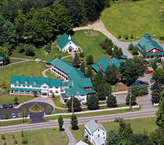

The 12 Traditions
The 12 Traditions speak to the members of Alcoholics Anonymous as a group, unlike the 12 Steps, which are focused on the individual. The traditions are defined in the Big Book, the main governing literature of Alcoholics Anonymous. Most 12-Step groups have also adapted the 12 traditions for their own recovery plans.
Here are the 12 traditions:
1. Our common welfare should come first; personal recovery depends upon AA unity.
2. For our group purpose there is but one ultimate authority–a loving God as He may express Himself in our group conscience. Our leaders are but trusted servants; they do not govern.
3. The only requirement for AA membership is a desire to stop drinking.
4. Each group should be autonomous except in matters affecting other groups or AA as a whole.
5. Each group has but one primary purpose–to carry its message to the alcoholic who still suffers.
6. An AA group ought never endorse, finance, or lend the AA name to any related facility or outside enterprise, lest problems of money, property, and prestige divert us from our primary purpose.
7. Every AA group ought to be fully self-supporting, declining outside contributions.
8. Alcoholics Anonymous should remain forever nonprofessional, but our service centers may employ special workers.
9. AA, as such, ought never be organized; but we may create service boards or committees directly responsible to those they serve.
10. Alcoholics Anonymous has no opinion on outside issues; hence the AA name ought never be drawn into public controversy.
11. Our public relations policy is based on attraction rather than promotion; we need always maintain personal anonymity at the level of press, radio, and films.
12. Anonymity is the spiritual foundation of all our traditions, ever reminding us to place principles before personalities.
Looking for a place to start?
Join the thousands of people that have called a treatment provider for rehab information.
Free and confidential
Available 24/7
Access to professional treatment
Does The Model Work?
Because of the anonymity of the program and lack of formal research available, it’s hard to tell just how effective the 12-Step model is. However, the prominence of this type of treatment as well as success stories from those in recovery suggest it is effective.
At the very least, the 12-Step model provides support, encouragement and accountability for people who genuinely want to overcome their addiction. The sponsorship model as well as regular meeting times encourage the kind of social support that has helped countless people stay clean.
Check if my insurance covers rehab
Addiction Center is not affiliated with any insurance.
Finding Treatment
Are you interested in finding a 12-Step program that could help you beat your addiction? With more than 50,000 Alcoholics Anonymous groups nationwide (and thousands of other Anonymous groups for various addictions), you’re bound to find one that works for you. Contact a treatment provider for more information.
Try Online Therapy

Get professional help from an addiction and mental health counselor from BetterHelp by phone, video, or live-chat.
Take the Quiz. Get Matched. Begin Therapy.

Online therapy can help you with long term addiction support. Connect with a therapist from Talkspace anytime, anywhere.
Get matched with a therapist now.
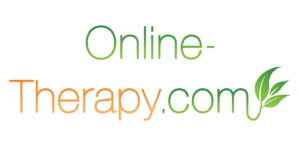
Begin making positive changes with Online-Therapy.com. Quality online therapy, from the comfort of home.
Answer a few questions to get started.
Paid Advertising. We may receive advertising fees if you follow links to promoted online therapy websites.
Published:
Author
Jeffrey Juergens

-
Jeffrey Juergens earned his Bachelor’s and Juris Doctor from the University of Florida. Jeffrey’s desire to help others led him to focus on economic and social development and policy making. After graduation, he decided to pursue his passion of writing and editing. Jeffrey’s mission is to educate and inform the public on addiction issues and help those in need of treatment find the best option for them.
- More from Jeffrey Juergens
Reviewed by Certified Addiction Professional:
Dayna Smith-Slade

Dayna Smith-Slade is a nationally certified Master Addictions Counselor (MAC), licensed Substance Abuse Professional (SAP), and Substance Abuse Expert (SAE) with over 29 of hands-on experience in the addiction field.
- More from Dayna Smith-Slade
Reviewed by Doctor of Addiction Medicine:
Dr. Ashish Bhatt, MD

-
Addiction Center’s Medical Content Director, Dr. Ashish Bhatt, MD, MRO is an accomplished physician, addiction medicine specialist, and psychiatrist with over 20 years of medical and administrative leadership.
- More from Dr. Ashish Bhatt
Sources


Recovery Starts Today
Call Now For Addiction Support



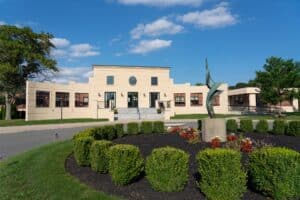
Recovery Centers of America at Danvers
Danvers , MA

Banyan Treatment Centers – Massachusetts
Boston , MA

Aftermath Addiction Treatment Center
Wakefield , MA
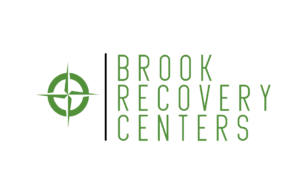


Recovery Centers of America at Westminster
Westminster , MA

Clearbrook Treatment Centers
Baldwinville , MA

Gifford Street Comprehensive Treatment Center
New Bedford , MA



Serenity Mountain Recovery Center for Women
Waymart , PA
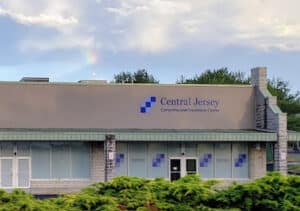
Central Jersey Comprehensive Treatment Center
Cliffwood , NJ

Recovery Centers of America at Raritan Bay
South Amboy , NJ